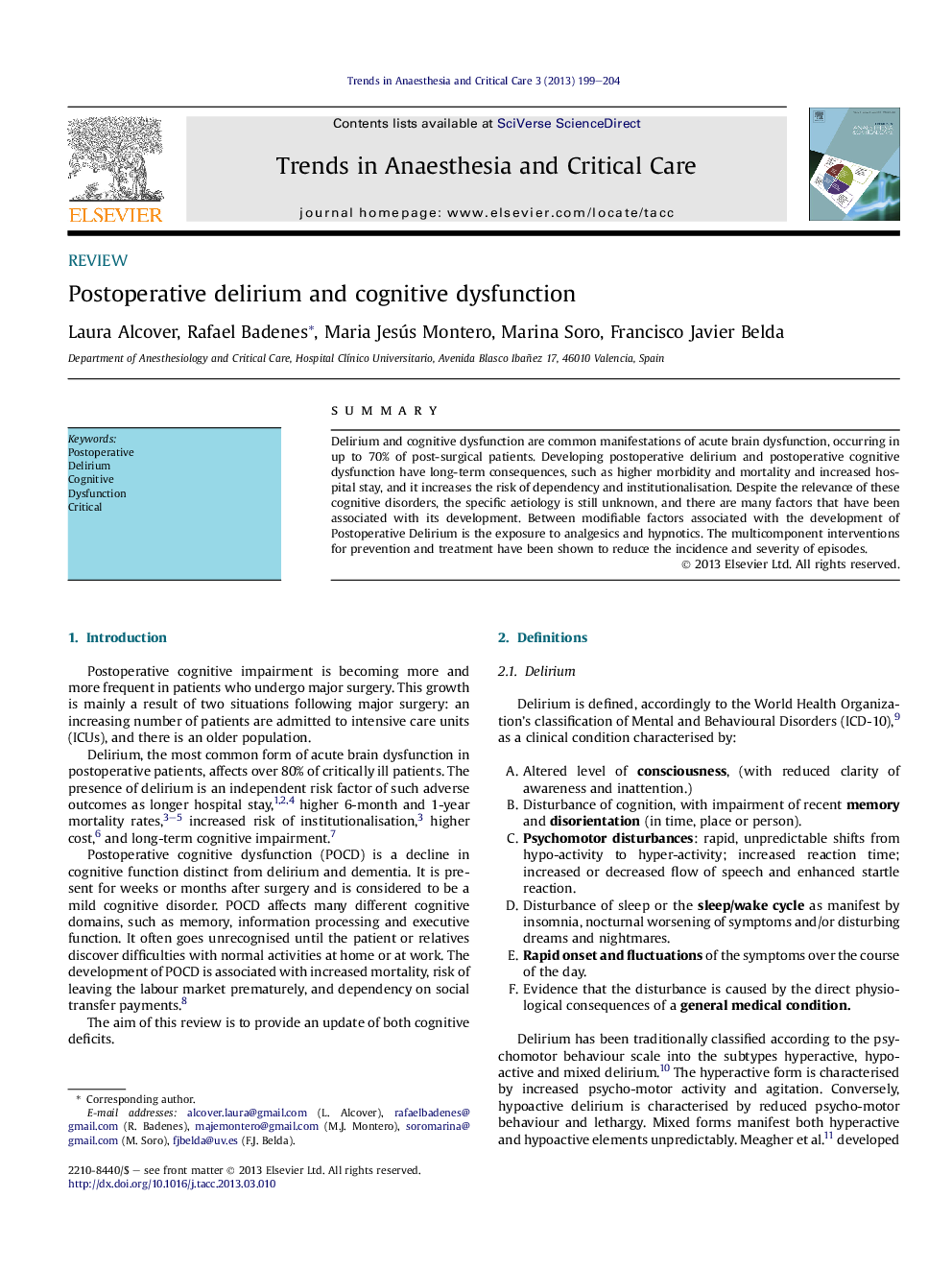| Article ID | Journal | Published Year | Pages | File Type |
|---|---|---|---|---|
| 2772623 | Trends in Anaesthesia and Critical Care | 2013 | 6 Pages |
SummaryDelirium and cognitive dysfunction are common manifestations of acute brain dysfunction, occurring in up to 70% of post-surgical patients. Developing postoperative delirium and postoperative cognitive dysfunction have long-term consequences, such as higher morbidity and mortality and increased hospital stay, and it increases the risk of dependency and institutionalisation. Despite the relevance of these cognitive disorders, the specific aetiology is still unknown, and there are many factors that have been associated with its development. Between modifiable factors associated with the development of Postoperative Delirium is the exposure to analgesics and hypnotics. The multicomponent interventions for prevention and treatment have been shown to reduce the incidence and severity of episodes.
